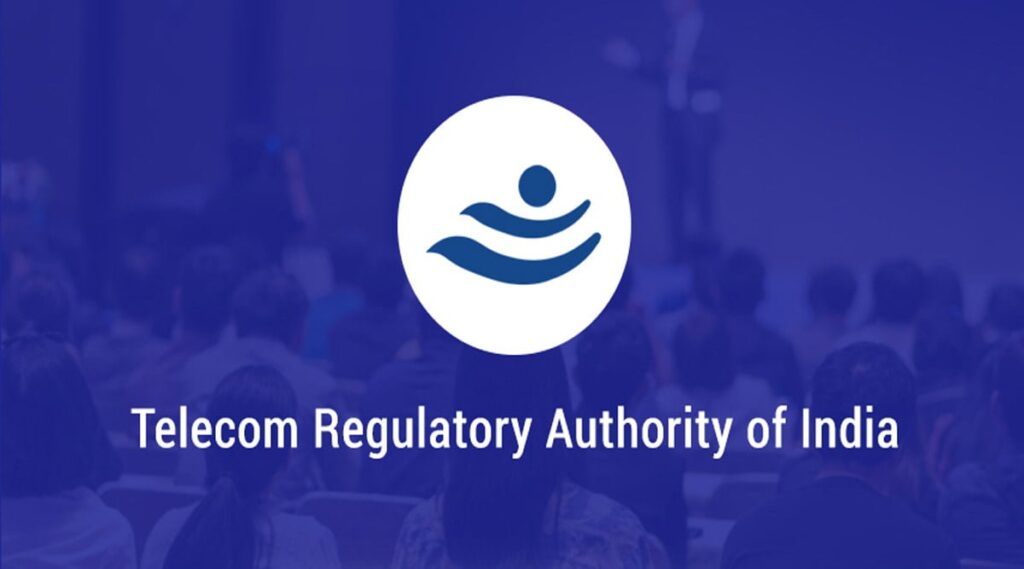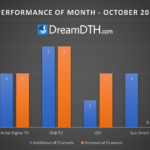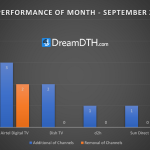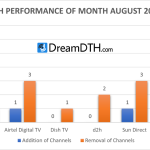The Telecom Regulatory Authority (TRAI) of India has recommended that the total number of permitted platform service (PS) for a DTH operator should be capped to 3% of its total channel carrying capacity and subject to a maximum of only 15 platform services channels.
The Ministry of Information and Broadcasting (MIB) replied to TRAI approving its recommendations with some modifications. The inter-ministerial committee or IMC suggested that the cap should be increased to 5% of its total channel carrying capacity and there should not be any fixed limit on the maximum number of PS channels since channel carrying capacity is widely different among DTH operators.
TRAI has disagreed with this recommendation from MIB. The regulator said that DTH operators have a limited channel carrying capacity and with the availability of a huge number of permitted satellite TV channels (900+) there is no necessity for more number of PS channels. DTH operators are content distributors produced by broadcasters, not content producers so the domain and functioning of the DTH operators are different from that of the broadcasters.
TRAI believes that the upper limit of 15 channels is also important so that even if the channel carrying capacity gets increased in future, it would be given to broadcasters.
The regulator said that broadcasters are not permitted to reach to consumers directly, they are dependent only on the distributors, hence allowing more channels as PS will put an artificial restriction on the broadcasters to launch new channels and in turn, they will be discouraged to bring new channels in the sector.
According to TRAI, DTH operators have a pan India presence so they don’t need to cater to the requirements of local audience or particular demography. Authority says that PS are generally meant for MSOs to carry some local community interest programme.
TRAI had also recommended that the programme transmitted by the DTH operator on PS channels must contain exclusive programs and that same shall not be permitted to be shared in any way with other DPOs and in case of its violation both TRAI or MIB can send notices, but the MIB recommended to restrict this power to itself.
On this, TRAI said that it is part of license condition and TRAI is mandated to ensure such conditions. The regulator said that there is a need for consistency between the TRAI act and DTH license requirements.
TRAI in its recommendations said that DTH operators shall be bound to orders/directions issued by TRAI in respect of DTH services including platform services provided by the operator.
IMC over this clause deliberated on powers of TRAI in respect of DTH operators as recommended. IMC recommended that except in respect of powers being hitherto exercised by TRAI in respect of DPOs, the issues pertaining to DTH operators etc. as per license should be regulated by MIB. However, IMC also said DPOs should abide by orders/regulations issued by TRAI relating to interconnection agreement, tariff and quality of service.
Responding to this, TRAI said that MIB should not put any artificial restriction in the license condition. The regulator cited several court cases by which it has been given approvals to ensure regulations for the whole DTH sector. DTH license should have one overarching clause clearly stating that DTH operators shall be bound by orders, directions or regulations issued by TRAI in respect of DTH services, the regulatory body added reiterating it’s recommendations.








